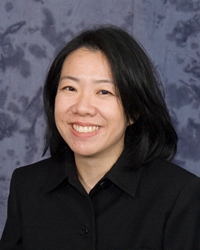Jul 25, 2011
ASCO Connection recently spoke with new Journal of Oncology Practice (JOP) Associate Editor Sandra L. Wong, MD, MS. In the following interview, Dr. Wong discusses the Journal and why she took on the role of associate editor.
AC: What do you envision for the Journal of Oncology Practice?
Dr. Wong: JOP is an authoritative source for practicing oncologists, focusing on practice management and quality improvement. What I see in JOP’s future is an increased focus on original health services research and how those findings impact the way we organize, manage, and deliver high-quality cancer care. Such work will continue to be complemented by feature articles in the “Practice of Research,” “Practical Tips,” and “Focus on Quality” sections of the Journal.
AC: What makes a good JOP manuscript?
Dr. Wong: The quality of manuscripts in JOP continues to improve and it’s because contributors recognize the growing importance of getting their original work out to their peers. JOP has a broad readership, but all readers share the goal of improving cancer care. Quite simply, a manuscript for JOP should clearly communicate contemporary, evidence-based information to the oncology community. JOP content is available in the NIH PubMed Central archives, adding a tremendous level of impact to publication.
AC: What do you want readers to gain from reading JOP?
Dr. Wong: That’s simple—I want readers to learn something that may improve the way they treat patients or manage their practices.
AC: How is JOP unique?
Dr. Wong: There are a lot of information resources available to practicing oncologists but JOP is unique because articles are original contributions from practicing oncologists and other experts in the field. All articles are peer-reviewed and many are primary reports of original research.
AC: What will be your biggest challenge as a JOP Associate Editor?
Dr. Wong: Practicing oncologists are already extremely busy and increasingly inundated with information. One of our biggest challenges is to capture the readers’ attention and truly earn our place as the authoritative source of information on clinical and administrative management as well as the go-to place for original health services research. Timely issues of practice management, practice efficiency, quality of care, care financing, and health care reform affect all of us.
AC: Why did you take on the role of JOP Associate Editor?
Dr. Wong: Dr. Cox, the Editorial Board, and the editorial staff are a high-energy group dedicated to the continual improvement of JOP. That’s important to me because I am excited about expanding JOP into a “home” for high-impact, practice-related health services research.
Sandra L. Wong, MD, MS, is an Assistant Professor in the Division of Surgical Oncology, Section of General Surgery, at the University of Michigan Health Systems in Ann Arbor, Michigan. Her clinical interests are in general surgical oncology, with a focus on melanoma, sarcoma, and gastrointestinal cancers. In addition to her new role as JOP Associate Editor, she is Co-Chair of ASCO’s Radiofrequency Ablation (RFA) Committee and a member of the Comparative Effectiveness Research Task Force, Health Disparities Advisory Group, and Quality of Care Committee.
 | |
| JOP Associate Editor Sandra L. Wong, MD, MS |
Dr. Wong: JOP is an authoritative source for practicing oncologists, focusing on practice management and quality improvement. What I see in JOP’s future is an increased focus on original health services research and how those findings impact the way we organize, manage, and deliver high-quality cancer care. Such work will continue to be complemented by feature articles in the “Practice of Research,” “Practical Tips,” and “Focus on Quality” sections of the Journal.
AC: What makes a good JOP manuscript?
Dr. Wong: The quality of manuscripts in JOP continues to improve and it’s because contributors recognize the growing importance of getting their original work out to their peers. JOP has a broad readership, but all readers share the goal of improving cancer care. Quite simply, a manuscript for JOP should clearly communicate contemporary, evidence-based information to the oncology community. JOP content is available in the NIH PubMed Central archives, adding a tremendous level of impact to publication.
AC: What do you want readers to gain from reading JOP?
Dr. Wong: That’s simple—I want readers to learn something that may improve the way they treat patients or manage their practices.
AC: How is JOP unique?
Dr. Wong: There are a lot of information resources available to practicing oncologists but JOP is unique because articles are original contributions from practicing oncologists and other experts in the field. All articles are peer-reviewed and many are primary reports of original research.
AC: What will be your biggest challenge as a JOP Associate Editor?
Dr. Wong: Practicing oncologists are already extremely busy and increasingly inundated with information. One of our biggest challenges is to capture the readers’ attention and truly earn our place as the authoritative source of information on clinical and administrative management as well as the go-to place for original health services research. Timely issues of practice management, practice efficiency, quality of care, care financing, and health care reform affect all of us.
AC: Why did you take on the role of JOP Associate Editor?
Dr. Wong: Dr. Cox, the Editorial Board, and the editorial staff are a high-energy group dedicated to the continual improvement of JOP. That’s important to me because I am excited about expanding JOP into a “home” for high-impact, practice-related health services research.
Sandra L. Wong, MD, MS, is an Assistant Professor in the Division of Surgical Oncology, Section of General Surgery, at the University of Michigan Health Systems in Ann Arbor, Michigan. Her clinical interests are in general surgical oncology, with a focus on melanoma, sarcoma, and gastrointestinal cancers. In addition to her new role as JOP Associate Editor, she is Co-Chair of ASCO’s Radiofrequency Ablation (RFA) Committee and a member of the Comparative Effectiveness Research Task Force, Health Disparities Advisory Group, and Quality of Care Committee.
